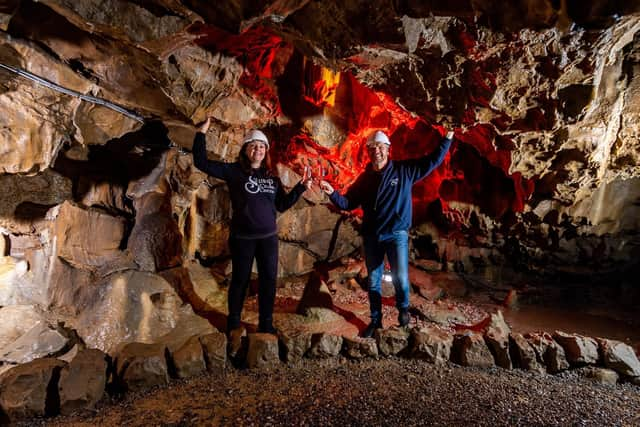Yorkshire tourism and hospitality are ideal for automation and VR - Chris Cooper
In terms of environmental trends, it is climate change and the drive to a zero-carbon economy where we will see the most changes. Globally, sea level change is a concern for tourism as investment is focused on the coast; iconic attractions such as the Great Barrier Reef are threatened.
And traditional tourism activities are vulnerable – sunbathing brings danger of eye cataracts and skin cancer due to the erosion of the ozone layer and reliability of snow for winter sports is threatened by global warming.
Advertisement
Hide AdAdvertisement
Hide AdCloser to home, Yorkshire will see warmer and wetter winters and hotter and drier summers. This will increase tourism at the cooler coast in the summer – demanding new investment – and push the peak summer season further into the autumn.


While future holidays will be strongly influenced by the environmental agenda, it is technology that will transform our future holiday experiences. It is estimated that tourism accounts for five per cent of global carbon emissions, partly because so many trips are by road or air.
It is only a matter of years before taxation catches up, increasing the price of travel. Interestingly, society is already aware of these trends as we are seeing ‘‘flight shaming’’ of frequent fliers and conscious decisions of many travellers not to fly. In the future, transport will be fossil free and fuel efficient; indeed, we already have electric powered boats on Amsterdam’s canals, maglev trains in China and electric planes are being tested.
The internet has changed how we book and search for travel, but it is artificial intelligence and big data that will revolutionise tourism. Imagine a visit to a theme park, event, or museum.
Advertisement
Hide AdAdvertisement
Hide AdAs you enter, facial recognition identifies you and big data knows everything about your visiting preferences. And of course, this allows managers to control crowds, manipulate visitor flows and prevent crowding and pinch points.
The technology of the fourth industrial revolution does not stop there in shaping our future travel. We will have to get used to robots serving us on holiday; already in York, a robot restaurant Hai Zhong Lao Hot Pot and BBQ has just opened.
However, while robots are intended to replace more fallible humans, they are not perfect. They cannot make beds and must be monitored 24/7, meaning that the hospitality environment has many security cameras. And bizarrely, 2019 saw the first example of Japanese robots being ‘‘sacked’’ for being irritating and incompetent.
The very nature of tourism as an ‘‘experience’’ lends itself perfectly to virtual reality (VR) and augmented reality (AR) applications, which can provide a ‘‘safe world’’ in the face of pandemics, climate change and terrorism. Such is the power of these technologies that there are concerns that they may one day merge and replace the authentic travel experience altogether.
Advertisement
Hide AdAdvertisement
Hide AdDedicated VR destinations are already being developed, with advanced stagecraft and high-end components that allow visitors to roam imaginary worlds untethered.
Augmented reality tours are already available here in Yorkshire, including for Hull’s heritage and Stump Cross caverns, whilst the Yorkshire Dales is developing ‘‘Google Expeditions’’ and Scarborough’s Peasholm Park has its AR “dinosaur safari and winter fairy fun” app.
Of course, truly immersive artificial realities are some years away, but their ultimate manifestation will see the creation of a virtual world allowing travellers to ‘drop in’ to destinations as avatars. Ultimately, the likes of Mark Zuckerberg’s ‘Metaverse’ threaten our physical visits to destination.
So, in a post-Covid world, the future is an exciting one, but what is clear is that we will never return to the relative stability of the 20th century: indeed, the early years of this century may be seen as one of privileged physical travel, never to be regained.
Chris Cooper is Professor in the School of Events, Tourism and Hospitality Management at Leeds Beckett University.
